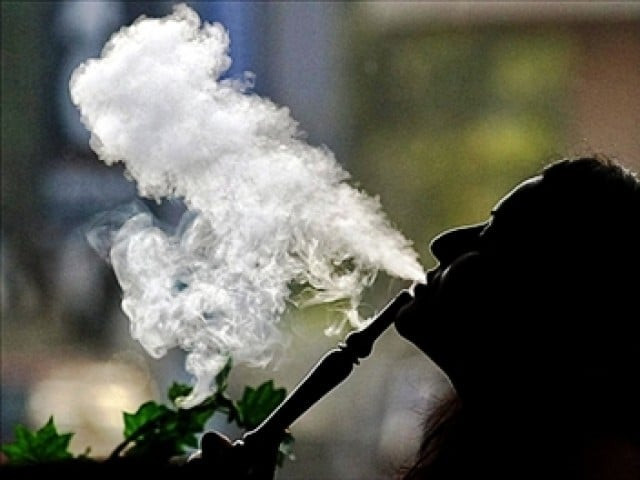Twenty year old Hassan* says:
“It is rubbish. They should ban cigarette smoking first!”
But will arresting the frequency of cigarette smoking make the ban on shisha more acceptable?
“Banning cigarette smoking will show that the government has a clear policy against smoking,” Hassan asserts. “Prohibiting shisha will only affect a small portion of the general population.”
The question of acceptability looms like a specter, putting a match to numerous contentious – and somewhat unsolvable –debates. Zahra*, a student in Karachi says:
“I find Bachal Shah’s statement – ‘not only boys, but teenaged girls also go to restaurants to smoke shisha’ – to be extremely derogatory and sexist. It takes the stereotyped image of woman and distorts it even more. I feel it could have been phrased better. It would have had a stronger impact.”
Hookah smoking has been deemed a popular activity in most South Asian countries and in the Arab world. Is it then apt to consider a ban of this nature as an assault on human liberties? Afsar*, a Lahore-based business student says:
“I think it should only be enforced in public places. This way, people who want to smoke shisha – in spite of the health risks involved – will have the freedom to do in the privacy of their own homes.”
Hookah smoking is also perceived as a predominantly elitist activity. It has become a fixture for various social gatherings and events.
Will this interdiction on shisha significantly alter people’s mindsets?
Fine arts student in Karachi, Farima* says:
“The shisha ban is rather absurd. There are countless other issues that are in need of potent attention and consequent action. The hazards created by shisha are insignificant in comparison.”
It is vital to analyze the impact this will generate in society. Rahman*, a twenty-one year old argues:
“I feel this ban will curb opportunities youngsters have to hang out and chill out. The youth in particular will feel deprived and may start using shisha underground. On the other hand, it’s good to see people taking such initiatives to promote health concerns.”
Although the ban on shisha is a stepping stone for change, there is still an inkling of resistance for it. Perhaps this can only be remedied if a tangible change in mindsets is propagated. But exactly how can this change be initiated? Zain* says:
“I don’t think the tactful use of advertising helps. There is no guarantee that it will work. I remember when cigarette ads were followed by public services. Did that stop people from smoking?”
Perhaps the government should consider marketing this new policy. Most people who smoke shisha – which comprises a large section of the youth – are unaware of the health risks it entails. They only perceive it as a pleasurable pastime and thus find the ban to be a violation of inalienable human rights.
It is only through an innovative awareness campaign that the government can convey its standpoint to the naively unacquainted youth.
*Names have been changed to preserve the identity of the respondents.



COMMENTS
Comments are moderated and generally will be posted if they are on-topic and not abusive.
For more information, please see our Comments FAQ